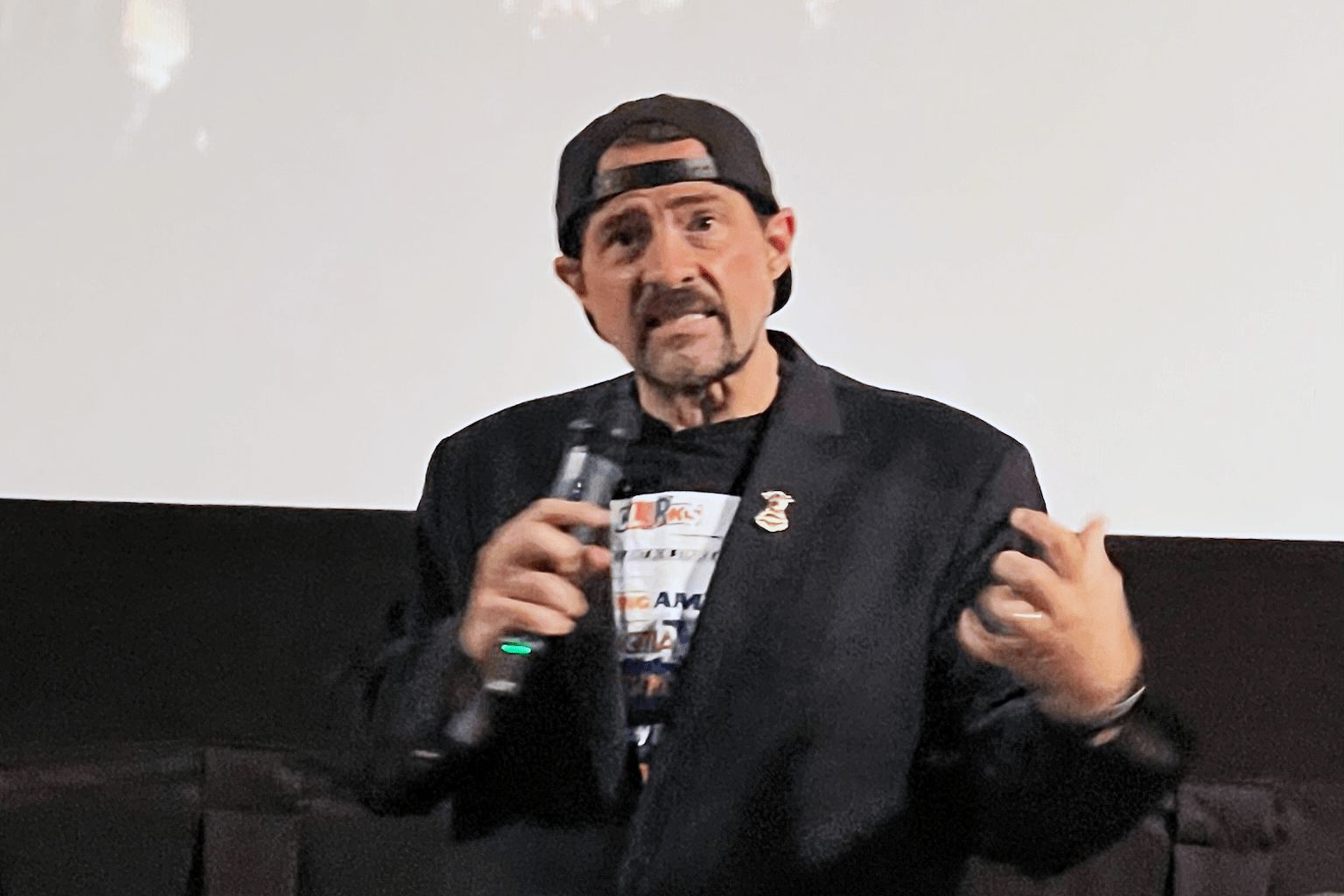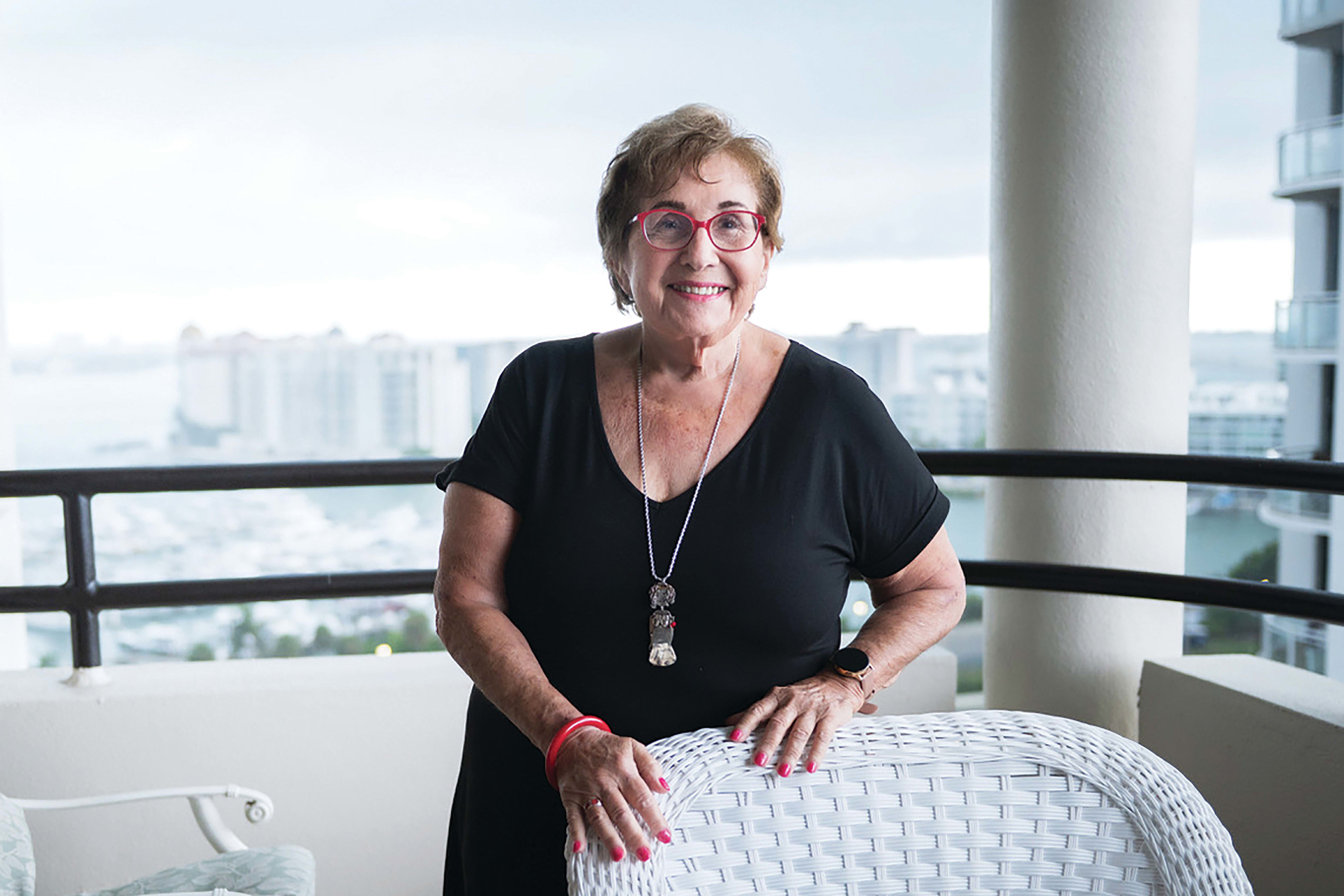Stephen Root on HBO's Barry, the Coen Brothers and Why He Always Wanted to Be a Character Actor
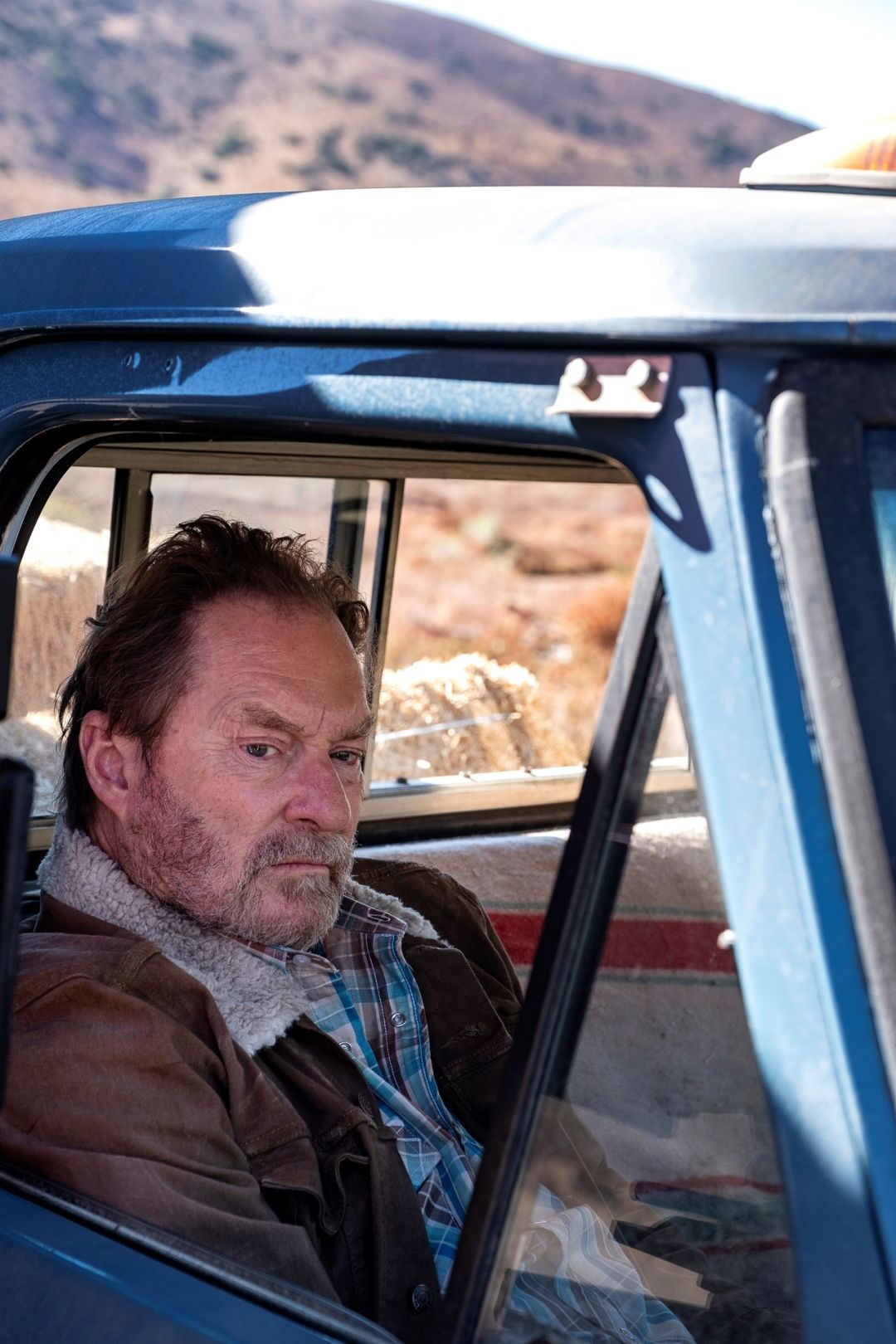
Stephen Root as Monroe Fuches in HBO's Barry.
Image: Merrick Morton/ HBO
There are certain actors who elevate whatever production they appear in, even if they're on screen for only a few minutes. Stephen Root, who was born in Sarasota and whose filmography encompasses close to 300 roles at this point, is one of those performers.
Root's career has included prominent turns in TV shows like NewsRadio, in which he played the blowhard boss Jimmy James, and iconic roles like the stapler-obsessed office drone Milton Waddams in the 1999 comedy Office Space. Root has also served as a voice actor for animated shows like King of the Hill and animated films like Ice Age, and he's become a regular in the acclaimed films of the Coen brothers, racking up credits in O Brother, Where Art Thou?, No Country for Old Men and The Tragedy of Macbeth.
These days, you're most likely to recognize Root as Monroe Fuches in the HBO show Barry, which is in the middle of its fourth and final season. He recently spoke with Sarasota Magazine about the show, his long career as a character actor and his ties to Sarasota and the state of Florida. This interview has been condensed and edited for clarity.
I've seen a lot of online chatter about how you're taking over HBO because you're on so many shows, including recently appearing on Succession and Barry back to back.
"What a bizarre thing that was. It was fun, because Succession is definitely my favorite show, besides Barry, obviously. I think it's so well written and beautifully done. So I was happy to come play with them. I'd worked with [Succession star] Kieran [Culkin] a couple of times and it was nice to go see him. All those people are so good."
It seems like once you're in that HBO world, you get asked to do a lot of different things. Is that how it works or is that just a coincidence?
"Well, yeah, if you don't screw it up too bad, I guess. I was lucky enough to do [a miniseries] a million years ago with Tom Hanks, From the Earth to the Moon. Then the next one I did was True Blood. I loved doing that show. I think that was my entry into HBO. I was always happy to be an HBO boy because it's a class outfit. Its stuff is beautifully written and it has pretty good production values all the way down. Now that I'm doing Barry, that really is the top of the heap. I'm just thrilled to be there."
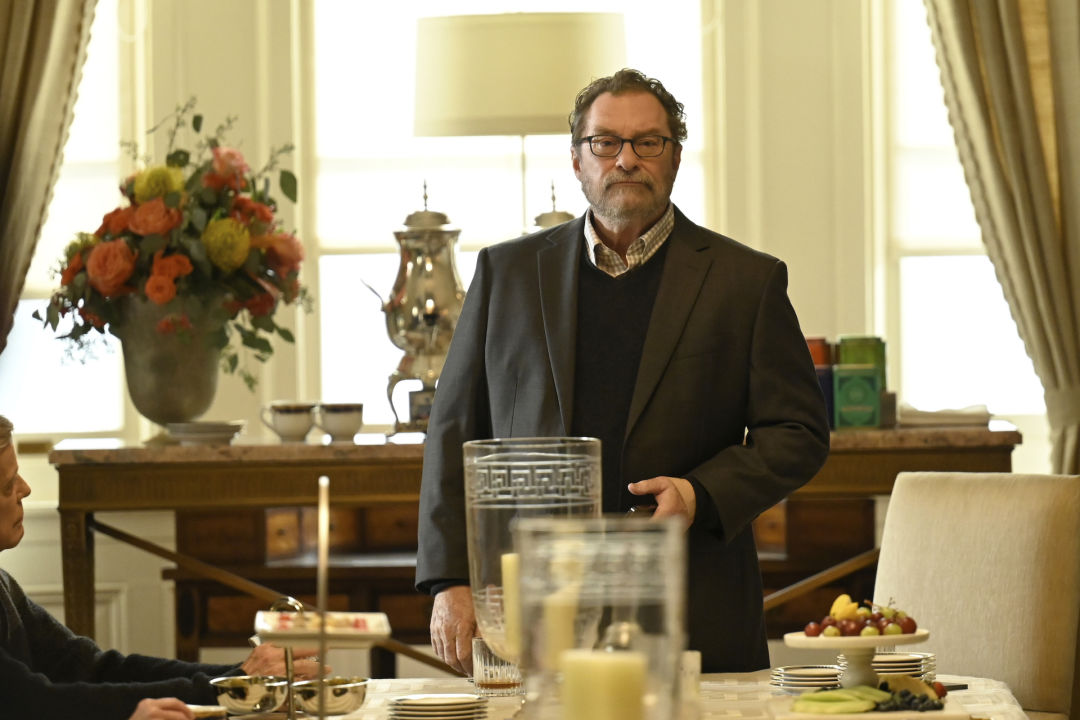
Root as Ron Petkus in HBO's Succession.
Image: David Russell/HBO
You've done a lot of TV in different formats, from the traditional sitcom to more scripted stuff. How do those different types of TV compare?
"Going from mostly doing theater in New York and then coming to L.A. and starting on TV, doing sitcoms in a four-camera format was a nice transition for me. You've got a 200-person audience as well as a camera right there. Then I started doing more single-camera stuff and drama from there."
How did you get cast in Barry?
"I think Henry Winkler [who plays the character Gene Cousineau] and I were a couple of the last people who were involved in casting, because they hadn't quite figured out whether [Monroe] Fuches was going to be the same age as Barry or not. By the end of the casting session, they figured, 'We're looking for more of a bad uncle, older type.' And they were nice enough to think of me."
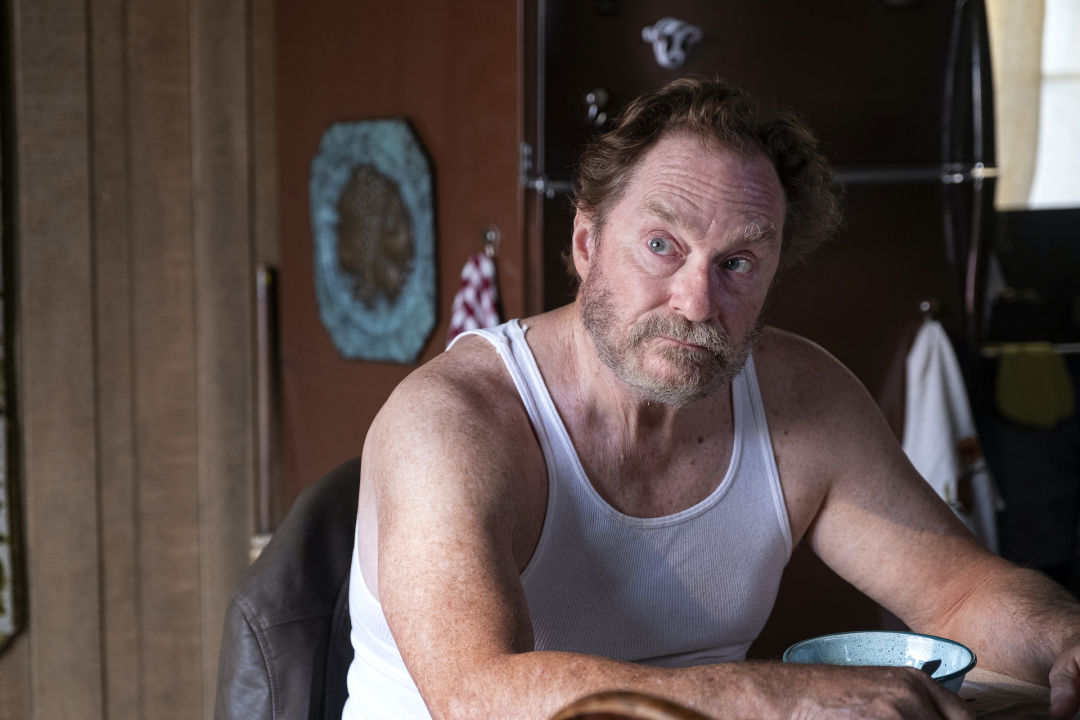
Root in Barry.
Image: Merrick Morton/HBO
Your character's relationship with Barry is so complex and layered, and it changes a lot. How did you approach that when you were just starting out, and how do you think that's evolved?
"In the first pilot script that I got for Fuches, the character was loud, boisterous, always screaming. We shot that in the pilot, and HBO looked at the pilot and went to [series co-creators] Bill [Hader] and Alec [Berg] and said, 'You've got nowhere to go. You're already at 11.' I agreed with that 100 percent. They wanted to rewrite the part into more of a 'bad uncle,' but you don't know that yet at the very beginning of the show. So it's a much subtler performance. I'm able to get to 11, and Fuches gets to 11 a lot of times in this series, but you have to start with the love that he has for Barry. You have to realize that he's known Barry since he was a 7-year-old playing soldiers in the dirt. You saw that this season, which is much more fun to play as a character actor than just a screaming moron."
You seem to get beaten up a lot on the show. What is that like as an actor? How do you prepare for scenes in which you're being physically punished?
"You yell at Bill and say, 'Look, I'm 100 years old! You're all young! Beat somebody else up!'
"No, I actually love doing the stunt beat-up stuff. It's fun for me and for them to really roughhouse this character. I can't imagine doing the character without him having repercussions from all sorts of people saying, 'What do you mean?' Boom! That's what would happen in real life. He'd get his nose punched. I think that's the way you have to go with that character."
What is fun about that kind of work—the physical stuff?
"I started out doing Shakespeare and clowns, a lot of physical bits. So that's not been unusual for me to do throughout my career, because everything starts from Shakespeare, anyway, and it just kind of translated into other comedic work. That seems natural to me. For this character specifically, we walk the line between real violence and real comedy, and they don't mix. I think we've trod that line fairly well."
Versatility seems important to you. Do you pride yourself on versatility, or is that just the way it's worked out for you?
"That's what I started out wanting to be, a character actor. It would be nice to be on a sitcom for 12 years, but you're doing the same character and for me, that's prison. I want to get out and do something different. So I've tried specifically in my career to take different things. When I've done a lot of comedy, the comedy stops for a while and I do some drama or do a mix—do a comedy film, do a drama on TV. So that's a conscious choice for me to mix it up."
So when you've just done a big dramatic role, you intentionally looking for something funny to do next?
"Yeah, I do. But at this point in my career, I really go for it if the script is superlative, and if it happens to be two dramas, I don't care. It's all about how good the script is and who the people are that you get to work with that you can maybe learn from—who the director is that maybe you've wanted to work with. But it all starts with the script."
You mentioned Barry being "the top of the heap." What is it about this show or this experience that's been so meaningful?
"We walked into the first table read for the show, and Bill and Alec said, 'OK, this is a show with a no asshole policy, and that starts with us and it will go down through every station.' That was a great start, because everybody then knows you're there for the good of the show. That started immediately and it's continued through the show. Nobody's looking for personal glory. We want to make the best thing that we can make. That's the best way to work."
I'm assuming that's a rare experience?
"Absolutely, it's a rare experience. People ask me, 'How does it feel that you're not going to do it now?' I say, 'It's not as much that I'll miss the show. I'll miss the writing, because the writing is so superlative, and I'll miss the people.' I've got six new best friends and I don't intend to let them go."
What did it feel like when you wrapped the show?
"I didn't really feel it on wrap day, because I knew there were possible reshoots at the end of the season, which we've done every year. But I think it really hit me at the premiere that this was the last time we're going to see everybody in one place. That was emotional—seeing the first couple episodes and all the people who you've worked with for the last six years, including two years of Covid."
One thing I've always heard about working with the Coen brothers is that they're very specific about following the script. Is that true?
"Yes, but they'll always give you one [take] to play around with your voice, or maybe a very small line change. But yeah, every thing of theirs is pretty much in their head what they want. But even on No Country for Old Men, I remember the last take we did, they said, 'Just do something fun.' Woody Harrelson came up with [makes mumbling noise], which they used, and that was the last fun take.
"They've used a couple of mine like that. I remember in O Brother, Where Art Thou?, there's a scene where I'm recording the [characters singing 'I Am a Man of Constant Sorrow']. And they said, 'Well, you want to sing along, right? And I said, 'No, I think he can't sing, but I think he would make these [hums] noises.' So we used that. There's flexibility with them. And they're just the best. I love working with them."
It seems like you have ongoing relationships with a lot of different creators. Does that get back to what you talked about, having a "no asshole" policy?
"Absolutely. A thing I tell young actors is do everything that you can. Do industrials. Do commercials. Do another student's scene. Do a million things. Come in prepared. They'll see that you're a professional and think, 'Oh, I remember that guy. He was good. He was OK on the set. He was fun to be around.' All that makes a difference, I think, for any profession. Come in. Do your work. Kill it. Work begets work."
I've read some interviews where you said you always wanted to be a working actor.
"I would think everybody's goal at the start of your career is to be a working actor. It's not to be a star or to get publicity or whatever. What you want is to be able to do good work and not be waiting tables. I got to the point in the early '80s where I wasn't waiting tables anymore. It was great."
I know you were born in Sarasota, but my understanding is you didn't really grow up in Sarasota, is that right?
"No. My mom told me that I was the youngest kid to get on a plane and fly out of there. I was 3 weeks old. My dad was a construction superintendent on steam power plants and it only takes a year and a half to do one. So his company would send him to the next one and then, after that would be done, the next one.
"I did end up going back to Sarasota. Back in about 1980, I came back and did Asolo Rep's children's theater tour. I love the west coast of Florida."
Was that just a coincidence? You didn't have any family ties or anything?
"Yeah, it was an audition out of New York. The Asolo was looking for actors for the children's shows that they had on tour. I went out and did that from, I think, December to May and had a great time."
When you were in high school, were you into drama and acting?
"No. I went into the University of Florida in the journalism program because I had been my school's photographer and I enjoyed that. I had my own darkroom. But after taking some electives and getting some student directors to use me as an actor, I thought, 'I like this.' After a year, I switched over to the drama department."
What was it about that experience that meant so much?
"The looseness of the people. Every kind of person was in that department that you could imagine—that I couldn't imagine when I was living in the Midwest. I was there in the 1970s, so it was hippie-dippie. I leaned into it."
Did you head to New York right after college?
"I was lucky enough to get an audition at something called SETC, the Southeastern Theatre Conference, and I went and auditioned for a [touring Shakespear production] out of New York. I ended up doing that nine months out of the year for three years, then was dumped back in New York as a starving actor and waited tables and did off-off-off-off-off-Broadway and regional theater on the East Coast—same as everybody else."
You mentioned Shakespeare being so fundamental. What was it like doing Shakespeare for that extended period?
"I had done a couple of Shakespeare plays in college and really took to it. We did one of them classically and we did one of them as an updated '20s version: Comedy of Errors with chauffeurs holding plastic cars as they walked along. I could see you can do anything with it. It's all commedia dell'arte and you just slip in."
That mix of comedy and drama must have been right up your alley.
"It was, yeah. Whatever junior college or college would hire us hired us to do Othello one night and Comedy of Errors the next night or Hamlet the night after that. Whatever three they wanted, we did. So we were all double-cast in three shows. By the time I got to New York, it was like, 'One show? One character? That's easy. I can do that.'"
And then decades later, you're doing The Tragedy of Macbeth film with Joel Coen.
"I felt very privileged to be able to again work with Joel and still be able to do a classical piece, but in such a wonderful way in terms of shooting it like a '40s movie. I mean, all these sets were huge indoor sets built at Paramount. There was not an outside shot in that movie. So it felt like I got to do Shakespeare, I got to do a '40s noir film and I got to work with Joel Coen. It's not much better than that."
Do you have any dream projects or things that you really would love to do?
"No, I don't have a bucket list of roles that I have to play. I really like doing ensemble work. I really like working with people that I haven't worked with that are great. So I'm hoping for great scripts. I'm not looking for a particular role. I've been lucky enough to get some really good stuff this late in my career and I want to keep doing that."
Do you ever think about writing screenplays?
"I wish I could, but to sit and look at a blank piece of paper, I'd rather kill myself. I love to bounce ideas off other people once something has started. That's fun. But I don't have the discipline to sit down and write something."
Well, most writers I know hate doing it, too. It's just that they can't not do it.
"That's the thing I tell young actors, 'Oh, don't be an actor unless you have to do it, come hell or high water.' Don't do it because you think it would be cool. Do it because, 'I have to, damn it.' I think writers are like that, too."
Do you get to be a mentor for younger actors now?
"I love going to New York and I really, really love to watch people work. I miss New York because that's where I grew up as a man and a theater actor. I'll always go back and say hi, but not as an official mentor. But I love to go to school competitions and sit on a folding chair and say, 'How are you guys doing?' That's fun for me."
Barry is winding down. I know you're doing the King of the Hill reboot. Anything else on the horizon for you?
"I've got a film that I'm going to be doing in London and Trieste—kind of a buddy comedy. I can't really talk about it yet, but it's going to be a fun summer to shoot in those two places. I'm doing a couple other animation projects. We're trying to get a show going called Bedrock, which is an updated version of The Flintstones. We've done a presentation for Fox on that. Again, if it's fun, somebody I want to work with and the script is good, I'll raise my hand for that."


